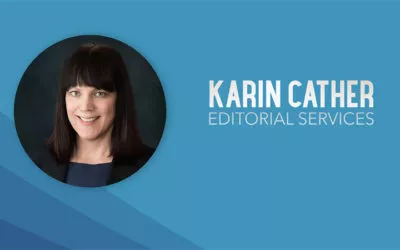I recently proposed that there be a universal certification requirement for editors. As I said in May, this certification should consist of, at minimum, a test. Right now, anyone who needs an editor could pay hundreds or thousands of dollars to someone who thinks editing involves unsplitting infinitives, changing all sentences that begin with but, and eliminating the author’s voice. At worst, they introduce errors and leave the manuscript even worse off than when they found it.
And then the writer walks away feeling cheated, which they were. Sometimes they find one of us to clean it up, but it’s just as likely that they’ll walk away disgusted with editing and tell other writers that editing’s a rip-off. There are writers’ forums everywhere. It will take you ten minutes to find discussions like that. Everyone’s unhappy. Everyone pays the price.
But how does this certification process work? Should editors be required to be certified in everything? What about specialists? Should there be certifications for specialists? Who should be allowed to take these tests? Who should be required to?
As a model for this, I’m going to talk about law and medicine.
Certifications for Lawyers and Doctors
Do we really think that medicine or law would have the same level of credibility if anyone could call themselves a doctor or a lawyer regardless of education and training? These professions are similar to ours. Law, like editing, is not as easy as it looks. And some people even think they can practice general medicine without any education at all.
But what kind of credibility would the legal profession have, for example, if anyone could do it? Would people be interested in paying $350 an hour to a divorce lawyer, or $10,000 to a criminal lawyer to defend a minor felony, if anyone could practice law whether they’d been to law school or not?
Lawyers have to obtain 1) a certificate (the JD); 2) a certification (pass the bar exam); and 3) licensure, which requires the first two and a character and fitness process. That involves a background check to make sure that the attorney-candidate hasn’t been convicted of things like embezzlement, fraud, or perjury.
I’m not going to talk about any character and fitness process, today. It’s subject matter, but for a later time. I’m also not going to discuss licensure, which involves state oversight. Right now, I’m only talking about certification. I’m also going to talk about specialties, because that’s on people’s minds, too.
Once doctors graduate from medical school and then become licensed by the state, they can become board certified in various specialties. Board certification is not mandatory. And, at least in Arizona, once licensed, attorneys can become a certified legal specialist. This is not mandatory, either.
To qualify for certification, an attorney must:
- Be licensed to practice law for at least five years (seven years for criminal and real estate certification)
- Be licensed in Arizona for at least two or three years
- Devote the equivalent of 50% to 70% of a full-time law practice in the specialty field
- Handle a specific number of cases in the specialty field
- Demonstrate integrity, professionalism and a high degree of competence in the specialty field
- Receive favorable peer review from attorneys, judges and other professionals in the specialty field
- Pass a written examination
Certification in law and medicine do require time in profession. There are good reasons for that that don’t apply to editing. Anyone who watches a new lawyer try to do an effective cross-examination of the other side’s expert witness knows why.
Setting Certification Standards for Editors
One of the most common objections to licensure for editors is that editors would be forced into a mechanical, uniform approach or be barred from the profession. Some editors are concerned that a bunch of other editors would force us to conform to a standard that might be unnecessarily rigid. A related objection is that editing is subjective and no one could possibly come up with standards. But the existence of style manuals belies that. SfEP and Editors Canada, AMWA and BELS have certification tests for editors. If anyone has those complaints about those tests, I’ll listen.
There are also certificates offered by universities. One of the courses that I took from University of California Berkeley Extension’s Professional Sequence in Editing was a structural editing course. The course features a mess of a document, created for the purpose, that desperately needs a structural edit. And we lived with that document for the whole course, and, by the end, each of us had edited that document ourselves. And we also had to find photographs. We had to reorganize and give focus to a wall of material. Surely no one could argue that there is only one way to do a structural edit. Certainly those who designed the course have a rubric so they could grade students, at all. If anyone thinks that every student had to edit that mess the same way, I’ll listen to that, too.
For further proof, consider lawyers and the bar exam. Yes, in the US there are two multiple choice tests, but lawyers also have to write six hours of essay exam for bar examiners. California has an additional day in which candidates address themselves to a case file. If anyone is here to insist that there are no subjective elements to the practice of law, I’ll be glad to discuss that with them in the comments. But just as there is no restriction on the multitude of varying approaches to the practice of law because of law school and a bar exam, there’s no reason to expect that editors will be restricted in our approaches, either.
Speaking of law school, lawyers and doctors need bachelor’s degrees and then they must go to law or medical school. In contrast, some editors have no degree beyond a high school diploma; some have advanced degrees. Is there any reason why an editor should have to have a bachelor’s degree if they can demonstrate proficiency in editing by means of certification exams? I’ve seen too many superior editors who don’t have bachelor’s degrees to get behind a requirement for a college degree. Some of you may have other thoughts.
Furthermore, the best editors in various specialties don’t necessarily have degrees in those specialties. One only need take a look at the work product of editors without PhDs, for example, to see that one can do superior work in the sciences or medicine without one. But those editors do have experience and training. And we should be able to pass a test that says we know the basics of editing. This is a separate animal from the kinds of specialized exams given by AMWA (medical editing) or BELS (scientific editing). I am not aware of whether there are certification exams for editing mathematical equations or cookbooks, but there should be.
Let’s move on. Editors can be generalists or editors can be subject matter experts. They can also specialize according to level of editing. The Editors Canada certification test certifies based on levels of editing.
Required or Allowed?
But who should be allowed to take these tests? Who should be required to take these tests? I think it’s fair to talk about grandfather clauses. If someone’s been editing for a decade and a half and has been actively mentoring other editors, making them get certified is silly. But I am saying that for those of us who have been at it less than five years, it’s another story. (I have an editing certificate from UC Berkeley Extension*, but there are time-in-profession requirements for most certification tests, today.)
Veteran editors, those who have been certified as specialists, see those certifications as badges of achievement and feel that newer editors should not be permitted to take those exams until they have been practicing those specialties for some time. Perhaps they are afraid that having many editors possess those credentials would dilute the profession. Or flood it. But that’s already happened. People already hold themselves out as specialists even though they lack the knowledge, the skills, or the experience. Do we really think those editors should practice without those things, diluting the credibility of the profession and, probably, driving fees downward?
Do we really think that those of us with fewer than five years of experience are going to outshout people with ten or fifteen or twenty years under their belt just because we pass the same test? Veteran editors are teaching editing courses, mentoring new editors, writing treatises on editing. Someone who’s been at it for two years isn’t going to look up to those with experience any less because we are required to take the same tests. In fact, those veteran editors should be grading those tests.
In some editor’s forums, my colleagues have posted websites of subpar editors whose own websites demonstrate lack of skill. Others have posted websites of companies that provide a stable (there’s no other good noun here if you see what these people can’t do) of editors who work for wages that no one could possibly live on. Some of these target those authors for whom English is a second language and who, therefore, wouldn’t necessarily know that they were getting ripped off. Many colleagues respond with outrage not only at the shoddy work but at the shoddy fees. My proposals address these very issues. In fact, they fix them.
*And a BA in comparative literature from the University of Virginia, and a JD from William & Mary Law School






0 Comments